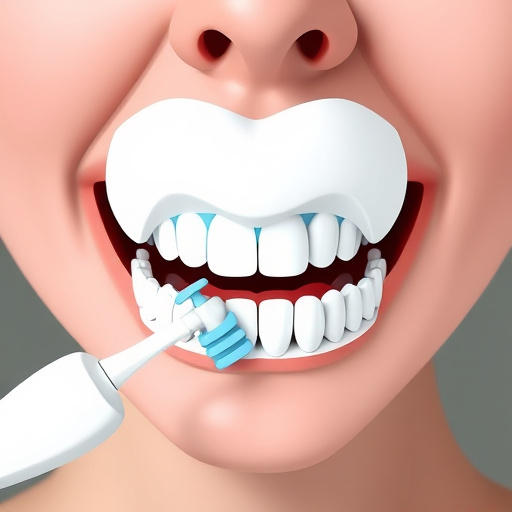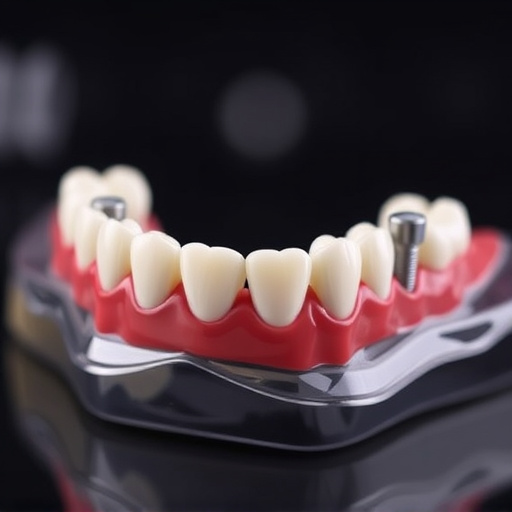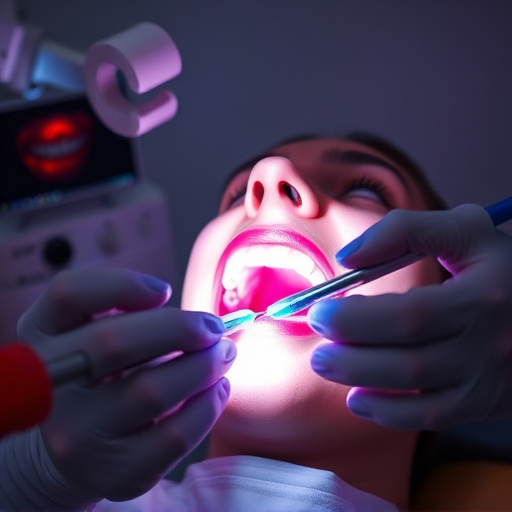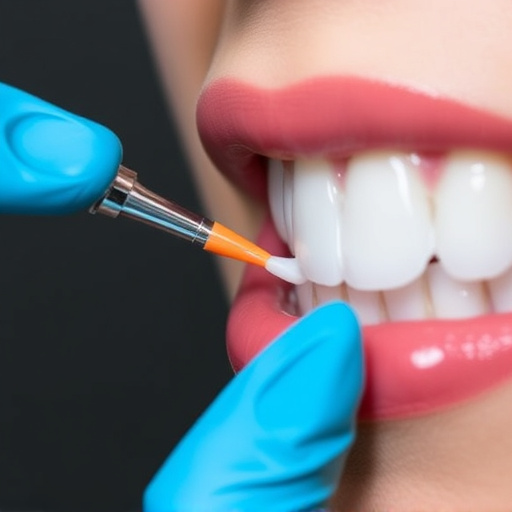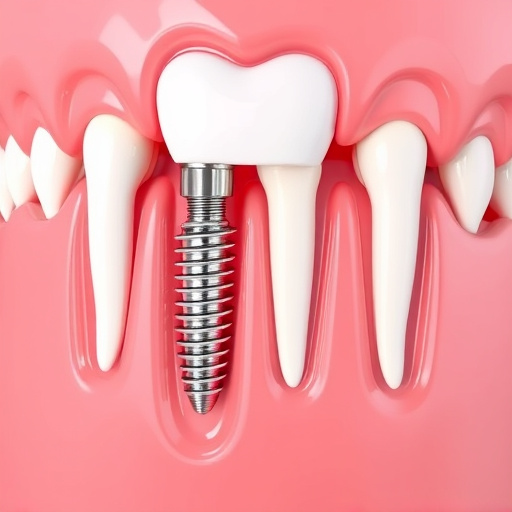Dental anxiety, caused by trauma, genetics, or psychology, manifests in physical symptoms like dizziness and sweating. Personalized treatment, incorporating relaxation techniques, cognitive-behavioral therapy, and cosmetic dentistry, is key to managing anxiety. Dentists create soothing environments with clear explanations, emotional support, and tailored distractions to help patients overcome fear and access essential care, such as dental implants, for optimal oral health.
Dental anxiety is a common challenge, but dentists have tailored innovative personalized treatments to address it effectively. This article delves into understanding the root causes and symptoms of dental anxiety, exploring how professionals design individualized plans that surpass one-size-fits-all solutions. We’ll uncover strategies for creating supportive environments, leveraging advanced techniques, and employing emotional support to ensure every patient receives comfort and care tailored to their unique needs, ultimately enhancing oral health outcomes.
- Understanding Dental Anxiety: Causes and Symptoms
- Personalized Treatment Approaches for Effective Management
- Creating a Supportive Environment for Patient Comfort
Understanding Dental Anxiety: Causes and Symptoms
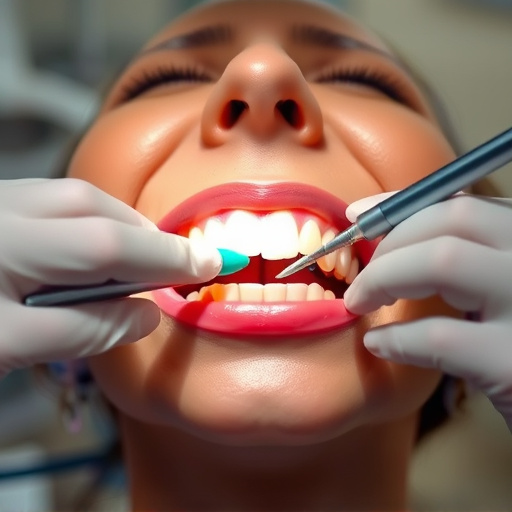
Dental anxiety is a common condition that can significantly impact an individual’s oral health and overall well-being. It manifests as a range of emotional distress and fear related to dental procedures, varying from mild discomfort to severe panic attacks. Understanding the causes and symptoms of dental anxiety is paramount in developing effective treatment plans.
Several factors contribute to its development, including past traumatic experiences, genetic predisposition, high sensitivity to pain, and even certain psychological conditions. Symptoms can include dizziness, sweating, rapid heartbeat, difficulty breathing, or an intense desire to escape the dental setting. For some, specific procedures like fillings, root canals, or dental implants may trigger particularly heightened anxiety. Accessing personalized dental care that considers these unique manifestations is crucial for successful dental anxiety treatment. Comprehensive approaches, often incorporating techniques from cosmetic dentistry, can help patients overcome their fears and access the essential care they need, including procedures such as dental implants, to achieve optimal oral health.
Personalized Treatment Approaches for Effective Management

Personalized treatment approaches are key to effectively managing dental anxiety. Dentists employ various strategies tailored to each patient’s unique needs and fears. This might include a combination of techniques such as relaxation methods, cognitive-behavioral therapy, or even personalized pain management strategies. By understanding the root causes of anxiety, dentists can create a soothing environment, use language that reduces fear, and offer explanations throughout the procedure to ensure patients feel informed and at ease.
These customized plans go beyond merely offering dental crowns or children’s dentistry services (though these may be part of the treatment). They focus on addressing the emotional aspects of visiting the dentist, incorporating techniques like deep breathing exercises, visual distractions, or even music to help patients relax during procedures like teeth cleaning. Such personalized care not only makes dental visits more comfortable but also fosters a sense of trust and long-term compliance with oral health maintenance routines.
Creating a Supportive Environment for Patient Comfort
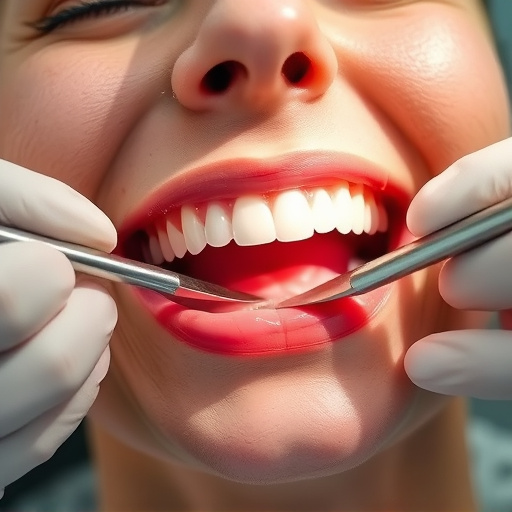
Creating a supportive environment is a key aspect of dentists personalizing dental anxiety treatment plans. This involves more than just ensuring a clean and sterile clinic; it’s about cultivating an atmosphere of comfort and care. Dentists can achieve this through friendly, compassionate interactions with patients, explaining procedures clearly and calmly, and using relaxing techniques like soft lighting, soothing music, and even aromatherapy. By fostering a sense of trust and security, dentists help alleviate the fear and tension often associated with dental visits, making treatments more manageable for anxious patients.
This focus on patient comfort extends beyond the consultation chair. It includes tailoring the entire experience to the individual’s needs, whether that means offering comfortable seating, providing distractions like headphones or TV, or even allowing patients to bring a support person along. Incorporating elements of preventive dentistry and restorative dentistry within this supportive framework can further reduce anxiety by addressing any underlying dental issues proactively and promoting long-term oral health, ensuring each visit is as stress-free as possible.
Dental anxiety can significantly impact a person’s oral health and overall well-being, but personalized treatment plans offer hope. By understanding the unique causes and symptoms, dentists can create supportive environments and employ tailored approaches. These may include behavioral techniques, cognitive therapy, or specific dental procedures to manage anxiety effectively. Through these comprehensive strategies, patients can find comfort and overcome their fears, ensuring better oral health outcomes and improved quality of life. This personalized approach to dental anxiety treatment is a game-changer in modern dentistry.


